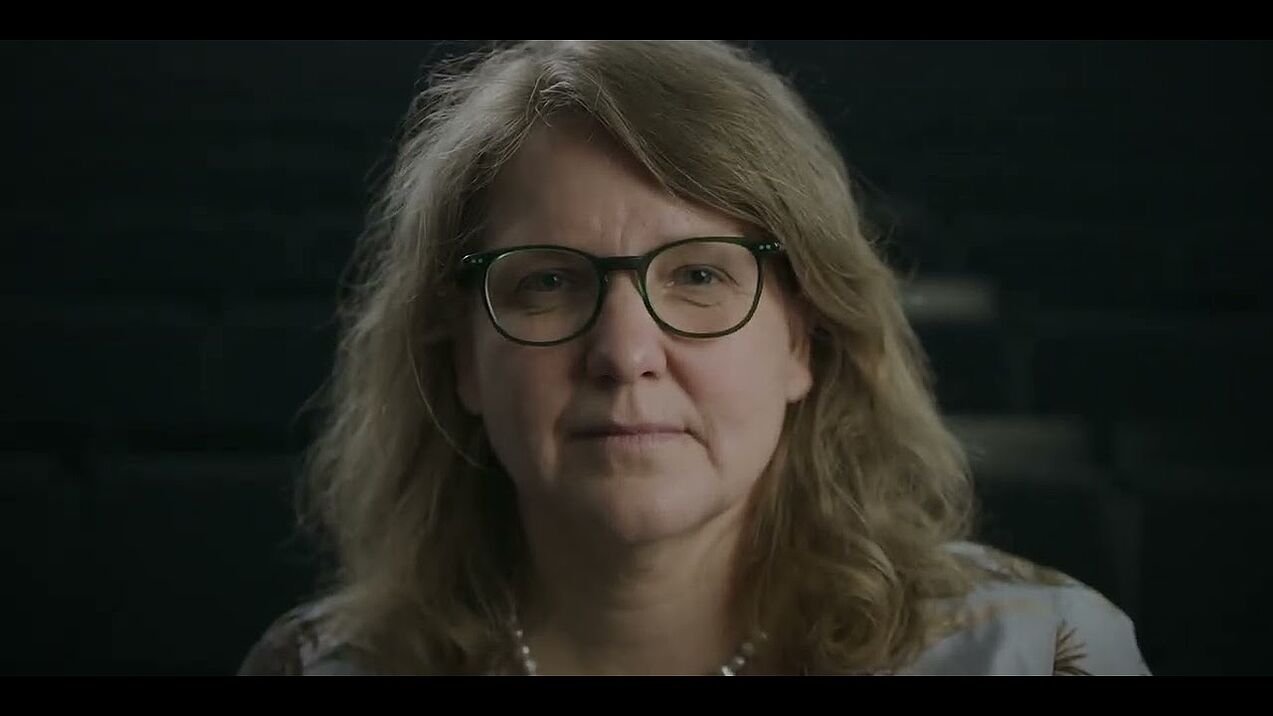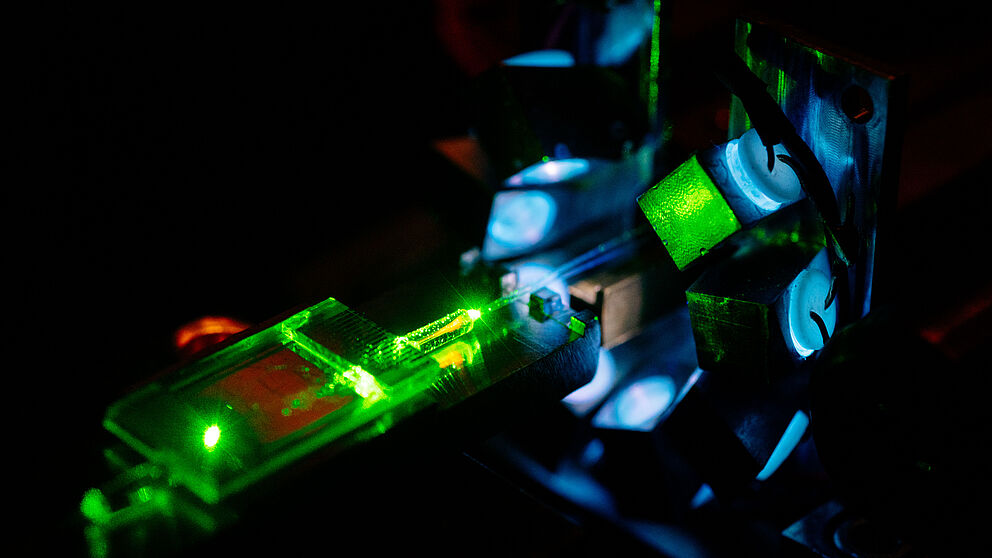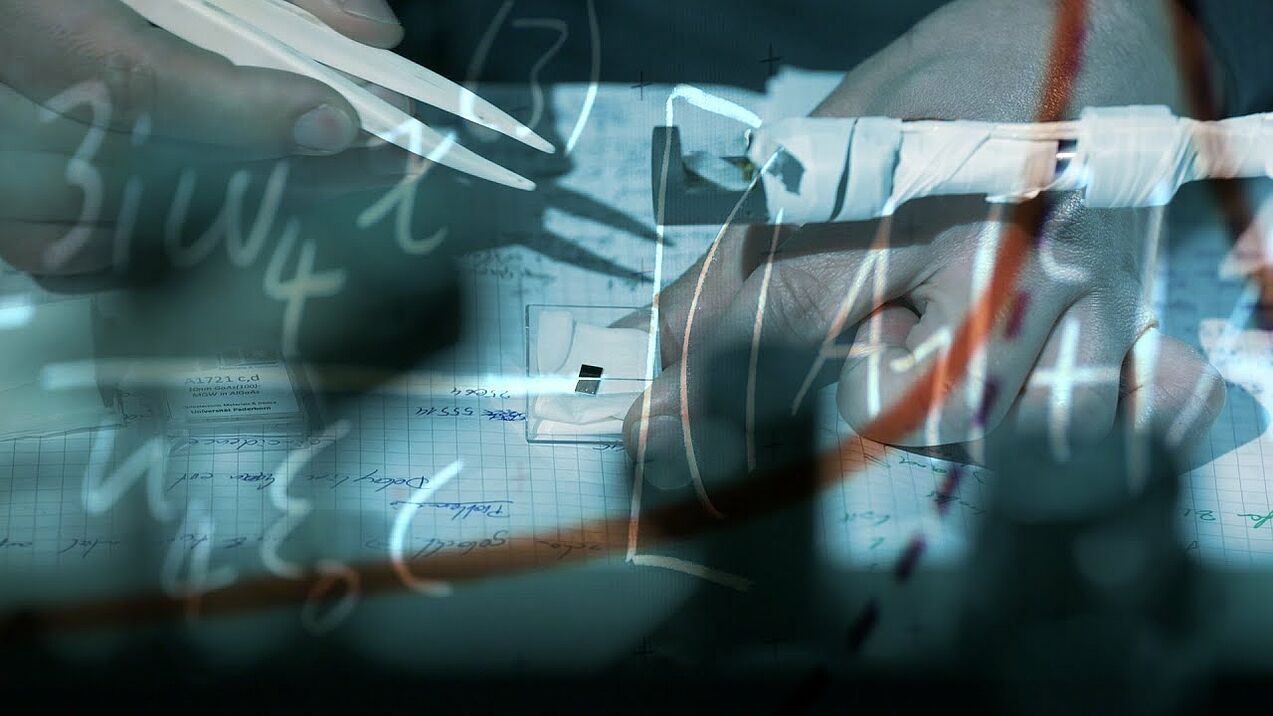Quantum research at Paderborn University: From fundamentals to practical application
Quantum technologies are changing our lives. Research into the smallest energy particles (known as quanta) puts us tantalisingly close to opportunities that were long considered to be out of reach. New concepts are providing solutions to the key challenges of our time: for complex interactions relating to resource efficiency as part of the energy revolution, improved traffic flows thanks to real-time data, or eavesdropper-proof communications via quantum encoding.
Quantum physics appears to turn the laws of nature on their head. Although it is one of the fundamental pillars of modern physics, it can often seem mystifying: take entangled particles that have a form of long-distance relationship, the difficulty of measuring them, or the fact that they can be in several states at once. Nevertheless, quantum physics is already playing a key role in everyday life, from atomic clocks to lasers to magnetic resonance imaging (MRI) – all inventions that would have been impossible without it.
Small particles, big effect
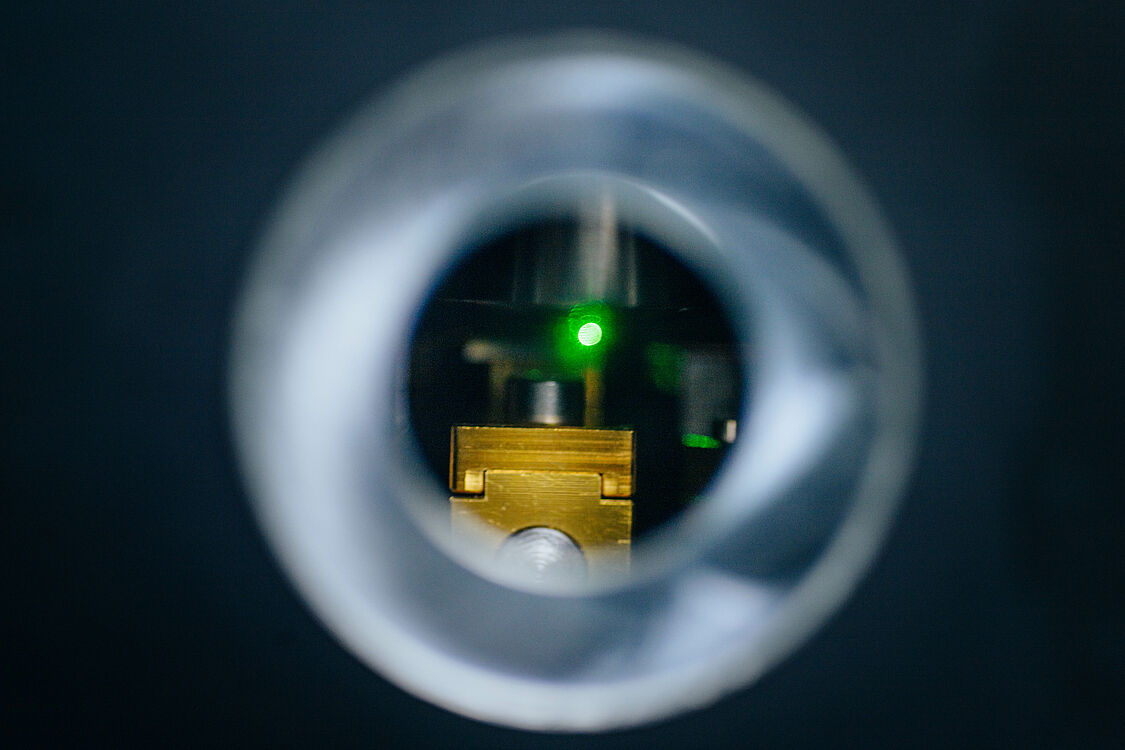
To understand the big picture, we enter the world of the smallest - the photons. These are particles of light that make up electromagnetic radiation. They form the basis for a number of quantum technologies and, due to their special properties, are seen as the hope for a revolution in data transmission and processing.
Scientists at Paderborn University have been researching these small energy packets for many years. As part of the Collaborative Research Centre (CRC) "Tailored Nonlinear Photonics", funded by the German Research Foundation (DFG), they are working on breaking new ground in information and communication technology - by manipulating light. The goal of the collaborative project with the Technical University of Dortmund is to make data transmission more secure and efficient through photonics.
Custom photons
Working with photons has its challenges. The common sources used to produce these tiny particles are still relatively imprecise. However, as their targeted manipulation is one of the most important key elements of quantum technologies, (further) fundamental research in the field is vital. Physicists at Paderborn University have been continually working to develop innovative concepts for individual photons with tailored properties. This enables them to manipulate the shape of photons, their energy content and the information they transmit. Specifically, the technology is used in areas such as quantum cryptography.
Quantum research in Paderborn
Paderborn plays host to quantum research at the highest level. Thanks to proven experts in different subject areas (with physicists joined by computer scientists, engineers and mathematicians in particular), all of the necessary resources are joining up to undertake fundamental research and put its findings into practice – projects decisively shaping and accelerating quantum research in Germany and beyond. At the university and in particular its Institute for Photonic Quantum Systems (PhoQS), researchers in the fields of physics, mathematics, electrical engineering and computer science are seeking to establish a nationally and internationally leading centre for photonic quantum technologies. For example, in the ‘Photonic Quantum Computing (PhoQC)’ potential area, researchers are striving to develop an interdisciplinary approach to creating a photonic quantum computer.
Quantum computing: looking forward
Paderborn’s researchers are also working to develop scalable methods for quantum system control.. These enable the sources of individual photons to be precisely controlled using ultrafast electronics. However, these are also particularly interesting to explore as they are a prerequisite for something being worked on by big players in the technology and IT sectors: they form the basis for ‘quantum computers’. These are special computers that differ from traditional computers in that instead of using bits, they work on the basis of quantum mechanical states.
Quantum computers are one of the key future technologies of the 21st century, with their potential exceeding even that of the best supercomputers. As high-performance tools, they can solve even the most complex of computational problems – tasks that push traditional hardware and software to their limits and beyond.
In the future, Paderborn will play host to every step in this process, from fundamental research into new quantum algorithms to large, complex quantum systems to real photonic quantum networks for relevant computing applications. Together with partners from science and industry (in Germany and worldwide), the researchers are working on projects such as chips for photonic quantum computers. Areas of potential application include the chemical industry, drug discovery and materials science.
Photon entanglement: a special kind of long-distance relationship
Only recently, researchers from Paderborn University have developed the first programmable optical quantum memory been using ‘entangled photon pairs’. This represents a key step forward on the path to usable quantum technologies. In experiments, physicists managed to store a quantum state until another was generated – a hurdle that had previously never been overcome. This work could therefore form the foundation for increasingly large entangled quantum states.
Entangled systems made up of multiple quantum particles offer crucial benefits when it comes to producing quantum algorithms. Rather than a single state resulting from the conditions of one photon, this produces a whole system made up of multiple states. A state represents a piece of information being transferred or processed. Systems like these are used in communication, data security or quantum computing.
Albert Einstein called it a ‘spooky action at a distance’: tiny particles that are interconnected, despite being apart, separated by meters, kilometres, or even lightyears. The phenomenon of entanglement means that specific properties of photons are coupled together. Specifically, this might mean that a photon with a high energy content becomes two photons, each with half of the original energy. These two particles, also known as photon pairs, are entangled: they essentially become twins. This makes them particularly useful for further experiments and applications.
Researchers for tomorrow’s world
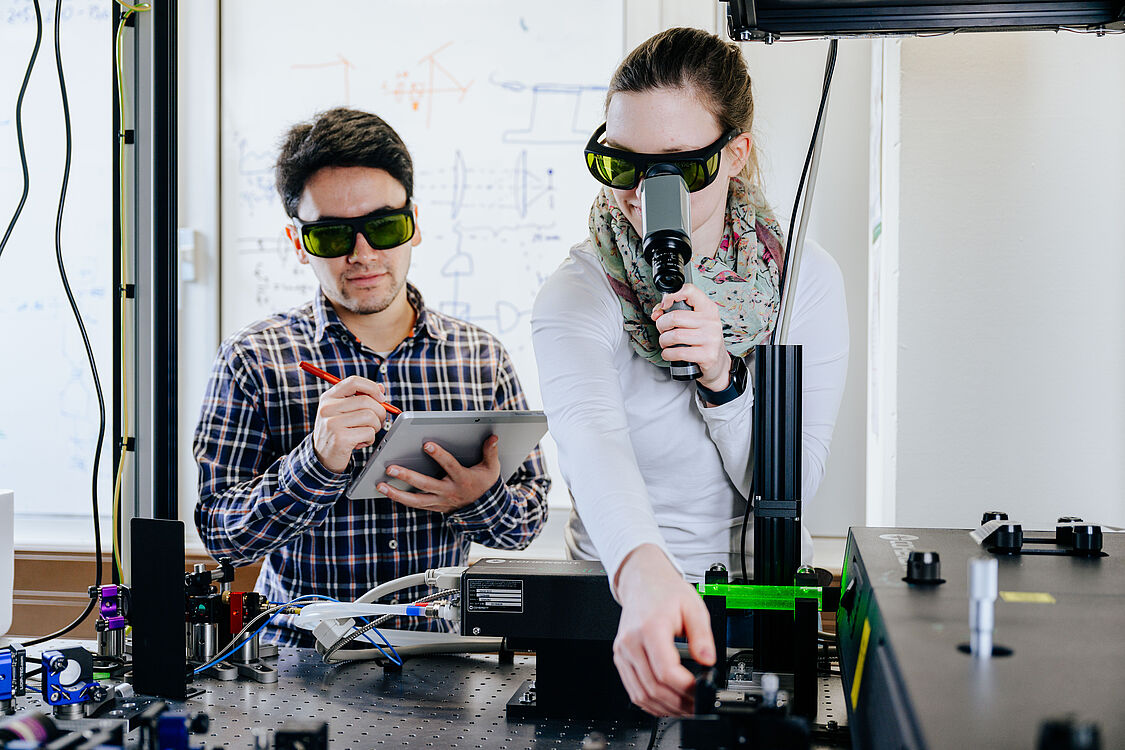
The race for technological leadership in the quantum sector has long been under way. It is therefore vital to train specialists in this future-oriented field and open up applications for business and large-scale industry. Given this, Paderborn University is working to train a new generation of exceptional researchers in the field of quantum computing. Corresponding study programmes are already available in various departments. The targeted combination of various different core competencies will enable Paderborn researchers to systematically develop the research field of photonic quantum computing and create new interactions that go far beyond the capacities of the individual disciplines. The establishment of new structures transferring topics from fundamental physics research into computer science and engineering research activities is unique in Germany’s research landscape.
Despite all the progress that has been made, there is still a long way to go before an application-specific quantum computer is actually produced. Key questions remain open and solutions are often only just beginning to emerge. Paderborn’s researchers are working hard to change this.

